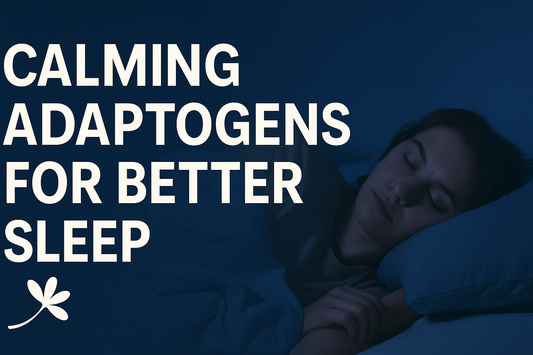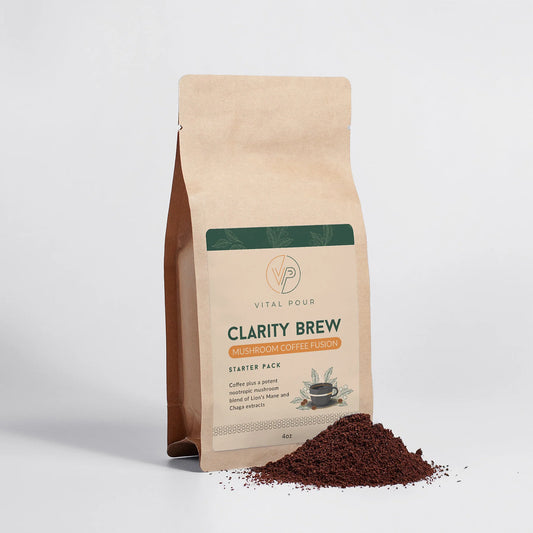Looking for a natural way to fight fatigue, manage stress, and boost your mental and physical performance?
Rhodiola rosea might be exactly what you need. Known as one of the most powerful adaptogens, this ancient root herb is scientifically backed to help your body resist both acute and chronic stress, sharpen focus, increase endurance, and support overall resilience.
In this article, we break down the top evidence-based benefits of Rhodiola rosea, how it works in your body, and why it’s become a go-to supplement for students, athletes, professionals, and anyone navigating the demands of modern life.
What is Rhodiola Rosea?

Rhodiola rosea, also known as roseroot, golden root, or Arctic root, is a perennial flowering plant that thrives in cold, high-altitude regions of Europe, Asia, and North America.
Its roots have been used for centuries in traditional medicine systems of Scandinavia, Russia, and other parts of the world to increase physical endurance, fight fatigue, prolong life, and treat stress-related ailments.
The key bioactive compounds responsible for Rhodiola’s adaptogenic effects are believed to be a group of phenylpropanoids, including rosavin, rosarin, and rosin (collectively known as rosavins), and salidroside (also known as rhodioloside).
How Rhodiola Rosea Supports Peak Performance Under Stress

Rhodiola’s power lies in its ability to help the body adapt to and resist the negative effects of various stressors. Here’s how it contributes to mental and physical performance:
1. Combating Stress and Fatigue:
Mechanism: Rhodiola helps modulate the body’s stress-response system, particularly the hypothalamic-pituitary-adrenal (HPA) axis.
It can influence the levels and activity of stress hormones like cortisol, preventing excessive spikes during acute stress and helping to normalize cortisol levels during chronic stress.
This helps conserve the body’s energy reserves and prevents the exhaustion often associated with prolonged stress.
Evidence: Numerous studies have shown that Rhodiola supplementation can reduce symptoms of fatigue, particularly stress-induced fatigue.
It can improve mental work capacity despite stress and tiredness, and enhance overall feelings of well-being.
2. Enhancing Mental Performance and Cognitive Function:
Mechanism: By reducing the impact of stress on the brain, Rhodiola can improve cognitive functions such as concentration, memory, attention span, and learning.
It may also influence neurotransmitter activity, including serotonin, norepinephrine, and dopamine, which play roles in mood, focus, and motivation.
Evidence: Research suggests that Rhodiola can improve mental performance in individuals experiencing stress-related fatigue.
Studies have demonstrated benefits in areas like proofreading tasks, complex calculations, and overall cognitive function under stressful conditions, such as during exams for students or night duty for physicians.
3. Boosting Physical Endurance and Performance:
Mechanism: Rhodiola is thought to enhance physical performance by increasing ATP (adenosine triphosphate) production in mitochondria, improving oxygen utilization, and reducing oxidative damage during intense exercise.
It may also help delay the onset of muscle fatigue and improve recovery.
Evidence: Several studies have investigated Rhodiola’s effects on physical performance.
Some have found improvements in endurance capacity, time to exhaustion, and perceived exertion in athletes and recreationally active individuals. It may also help protect against exercise-induced muscle damage.
4. Supporting Mood and Reducing Symptoms of Anxiety and Depression:
Mechanism: Rhodiola’s influence on neurotransmitters like serotonin and dopamine, coupled with its stress-reducing effects, may contribute to its mood-stabilizing and antidepressant properties. It can help promote a sense of calm and well-being.
Evidence: Some clinical trials have indicated that Rhodiola extract can reduce symptoms of mild to moderate depression and generalized anxiety disorder. It is often considered a gentler alternative or complementary approach to conventional treatments for these conditions.
5. Neuroprotective Properties:
Mechanism: The antioxidant compounds in Rhodiola, such as salidroside, help protect brain cells from oxidative stress and damage, which are implicated in neurodegenerative diseases and age-related cognitive decline.
Using Rhodiola Rosea Effectively

-
Standardized Extracts: Look for supplements standardized to a certain percentage of rosavins (typically 3%) and salidroside (typically 1%). This ensures a consistent dose of the active compounds.
-
Dosage: Common dosages range from 100 mg to 600 mg per day, often split into one or two doses. Lower doses are sometimes used for general stress adaptation and cognitive enhancement, while higher doses might be used for more acute fatigue or performance needs. It is often recommended to take Rhodiola earlier in the day due to its potential to be mildly stimulating for some.
-
Cycling: Some practitioners recommend cycling Rhodiola (e.g., taking it for several weeks or months, then taking a break) to maintain its effectiveness, though this is not universally agreed upon.
-
Timing for Acute Effects: For acute stress or performance enhancement (e.g., before an exam or athletic event), Rhodiola can be taken about 30-60 minutes prior.
Considerations and Potential Side Effects
Rhodiola rosea is generally well-tolerated by most people when taken at recommended doses. However, some potential considerations include:
-
Mild Side Effects: Some individuals may experience mild side effects such as dizziness, dry mouth, or excessive salivation. It can be mildly stimulating for some, so taking it late in the day might interfere with sleep in sensitive individuals.
-
Interactions: Rhodiola may interact with certain medications, including antidepressants (MAOIs, SSRIs), blood pressure medications, and diabetes medications. Consult with a healthcare professional if you are taking any medications.
-
Bipolar Disorder: Individuals with bipolar disorder should use Rhodiola with caution, as its stimulating effects could potentially trigger manic episodes in susceptible individuals.
-
Pregnancy and Breastfeeding: There is insufficient research on the safety of Rhodiola during pregnancy and breastfeeding, so it is generally not recommended.
🌟 Boost Your Brain and Body with Every Sip
Ready to take your mental clarity and physical performance to the next level? Pair the power of Rhodiola rosea with Lion’s Mane and Chaga in our expertly crafted Mushroom Coffee Fusion.
Whether you're facing a high-stress workday, an intense workout, or simply want to feel more energized and focused - this adaptogenic brew has your back.
👉 Fuel your focus. Support your resilience. Shop Now
Conclusion:
Rhodiola rosea is a potent adaptogen with a rich history of use and a growing body of scientific evidence supporting its benefits for mental and physical performance, especially under conditions of acute and chronic stress.
By helping the body adapt to stressors, reduce fatigue, sharpen cognitive function, and enhance physical endurance, Rhodiola offers a natural and holistic approach to thriving in a demanding world.
As with any supplement, it is advisable to choose high-quality products and consult with a healthcare professional, particularly if you have pre-existing health conditions or are taking other medications.


